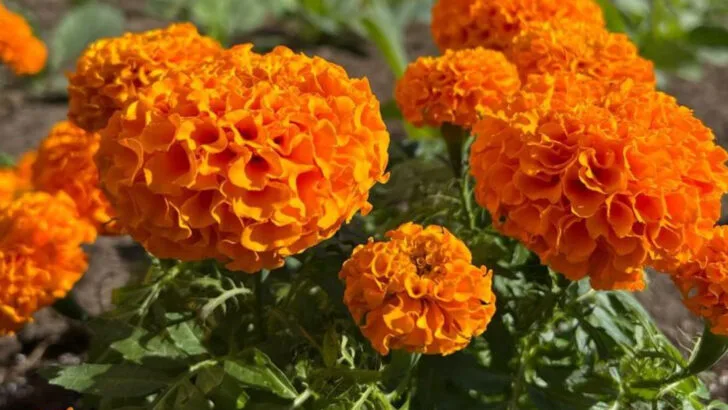Bugs have their place in the ecosystem, but that doesn’t mean you want them buzzing around your patio or nibbling through your garden. Instead of reaching for sprays and traps, there’s another option that smells better and looks a whole lot nicer plants. Some varieties naturally give off scents or oils that insects can’t stand, even if we find them pleasant.
From herbs like basil and rosemary to flowers like marigolds and lavender, certain plants are surprisingly effective at keeping pests away. You don’t need a full garden, either—a few pots on a balcony or windowsill can make a difference. Here are 20 plants that help you enjoy your space without the constant swatting.
Lavender
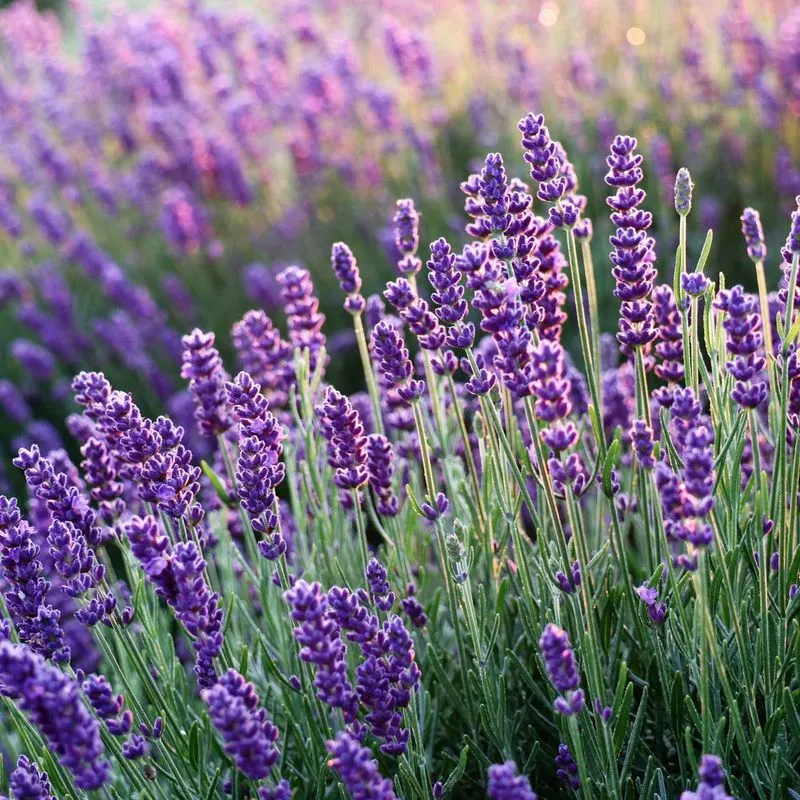
Lavender is renowned for its calming fragrance and striking purple blooms. But did you know it’s also a powerful insect repellent? Its aroma is disliked by mosquitoes, moths, and flies, making it a perfect addition to gardens. Planting lavender near windows and doorways can help keep your home pest-free.
Aside from its practical uses, lavender’s soothing scent can enhance the ambiance of your outdoor space, creating a tranquil retreat. Historically, it was used in ancient Roman baths. Enjoy both its beauty and utility in deterring unwanted insects while delighting in its fragrance.
Basil
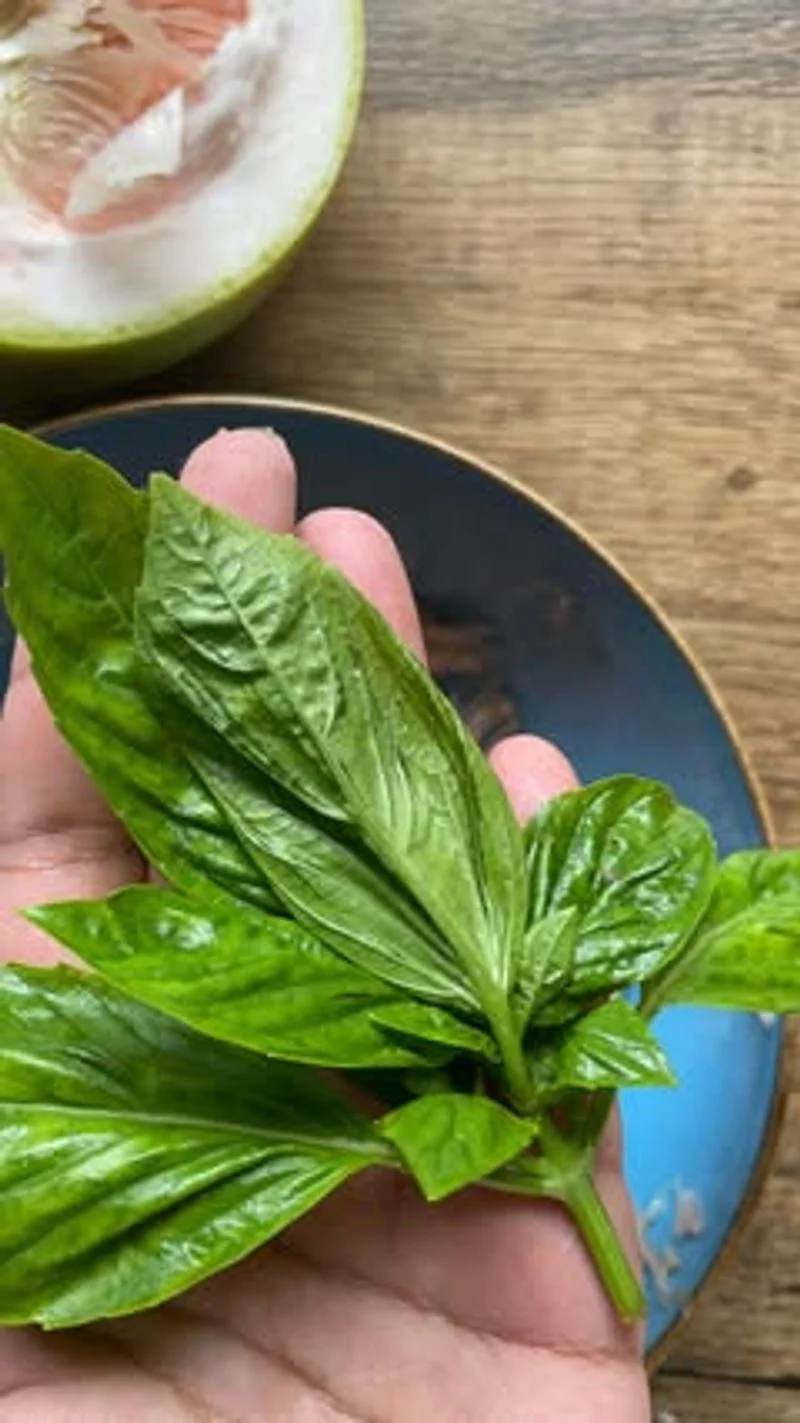
Basil, a staple in culinary gardens, doubles as an insect deterrent. Its aromatic leaves release a fragrance that repels flies and mosquitoes, protecting your garden and home. Plant basil in pots around your patio or garden to enjoy its fresh scent while warding off pests.
This herb not only contributes to delicious dishes but also adds vibrant greenery to your space. Its history as a sacred plant in some cultures adds an intriguing aspect to its presence. Choose basil for a multipurpose plant that combines culinary delight with natural pest control.
Marigold
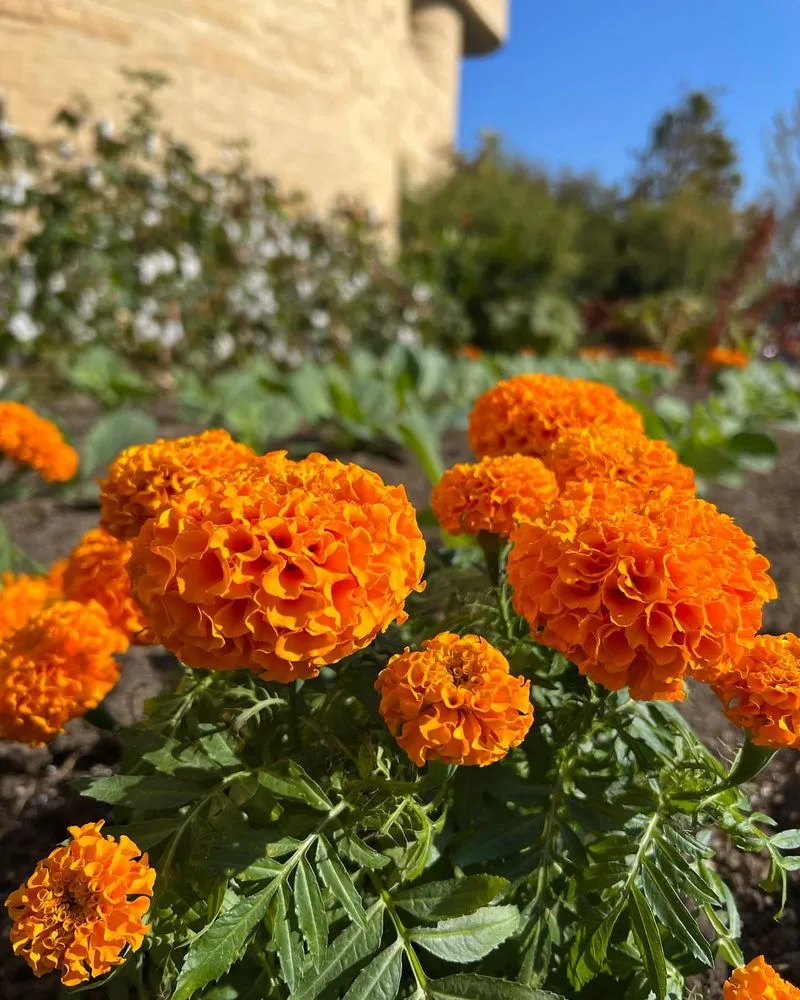
With its bright and cheerful blooms, the marigold is not just a garden favorite but also a natural insect repellent. The scent of marigold is known to deter nematodes, mosquitoes, and other garden pests. Planting marigolds among vegetables can protect your crops naturally.
Embrace the added beauty these flowers bring to your garden, while enjoying their pest-repelling benefits. Historically used in companion planting, marigolds have been a gardener’s ally. Let their vivid colors and protective nature add charm to your outdoor spaces.
Mint
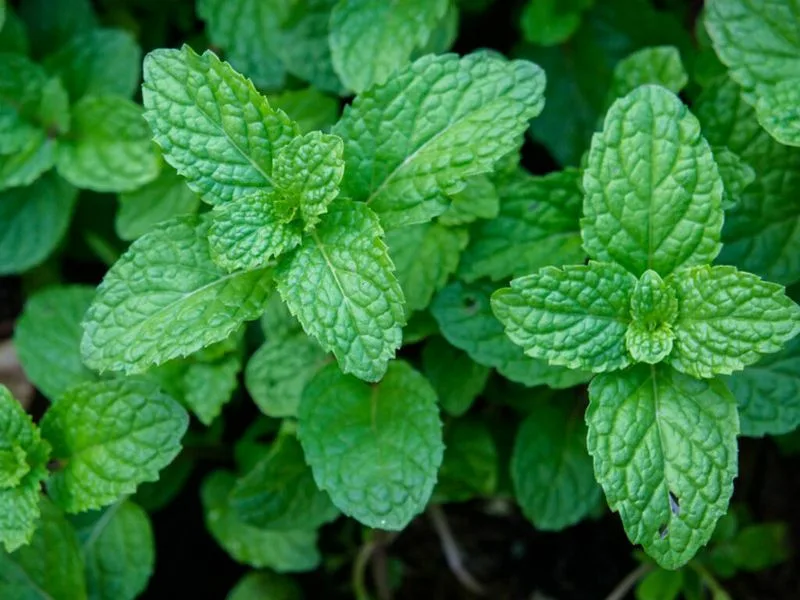
Mint’s refreshing aroma and versatile uses make it a garden staple. Its strong scent repels ants, mosquitoes, and even mice, making it a valuable addition to any outdoor space. Plant mint in containers to prevent it from overtaking your garden, and place it strategically around patios.
This resilient plant not only aids in pest control but also offers culinary and medicinal benefits. Known for its cooling properties, mint is a favorite in summer beverages. Incorporate it for both its refreshing qualities and its natural ability to deter pests.
Rosemary
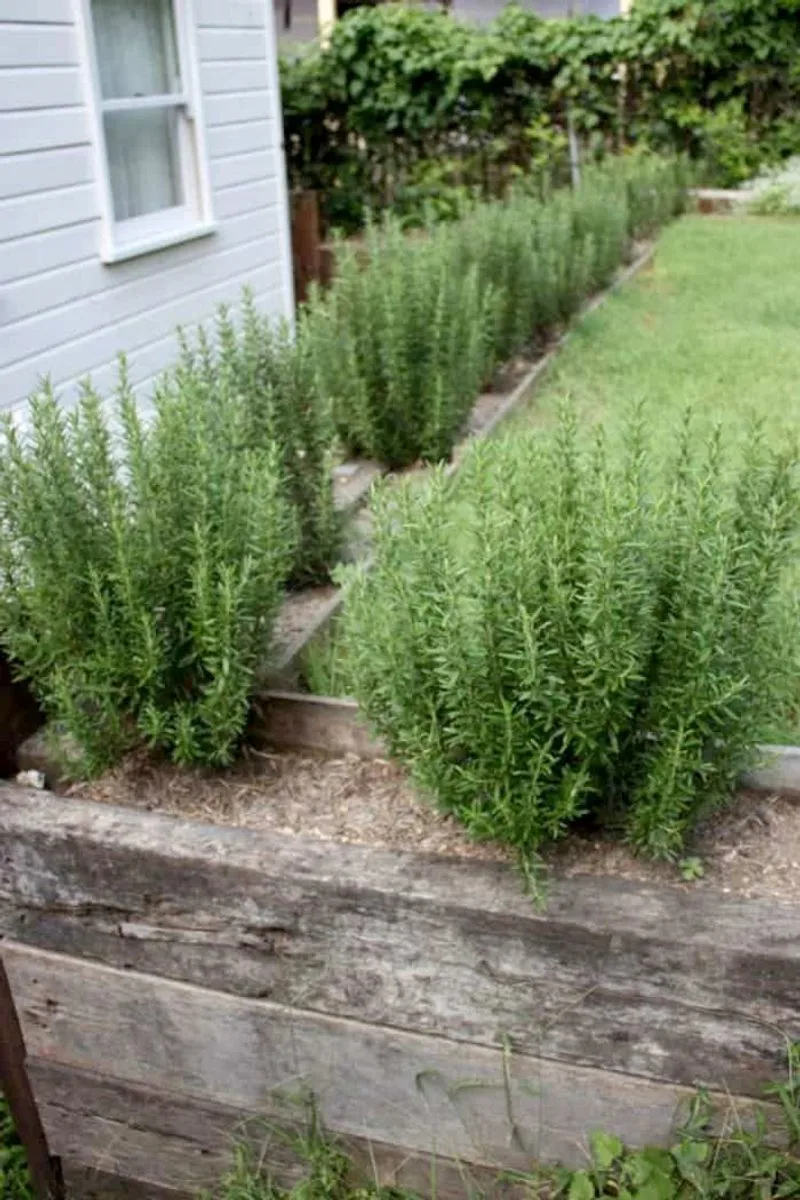
Rosemary, known for its culinary applications, serves as a natural insect deterrent. Its woody scent is unpleasant to mosquitoes and other insects, providing protection for your outdoor areas. Plant rosemary near entrances or in pots on your patio for an aromatic barrier.
Beyond pest control, rosemary attracts beneficial insects like bees, aiding in pollination. Its historical use in ancient rituals adds a touch of mystique. Invite rosemary into your garden for its utility and touch of Mediterranean charm, enhancing both your cooking and outdoor experience.
Lemongrass
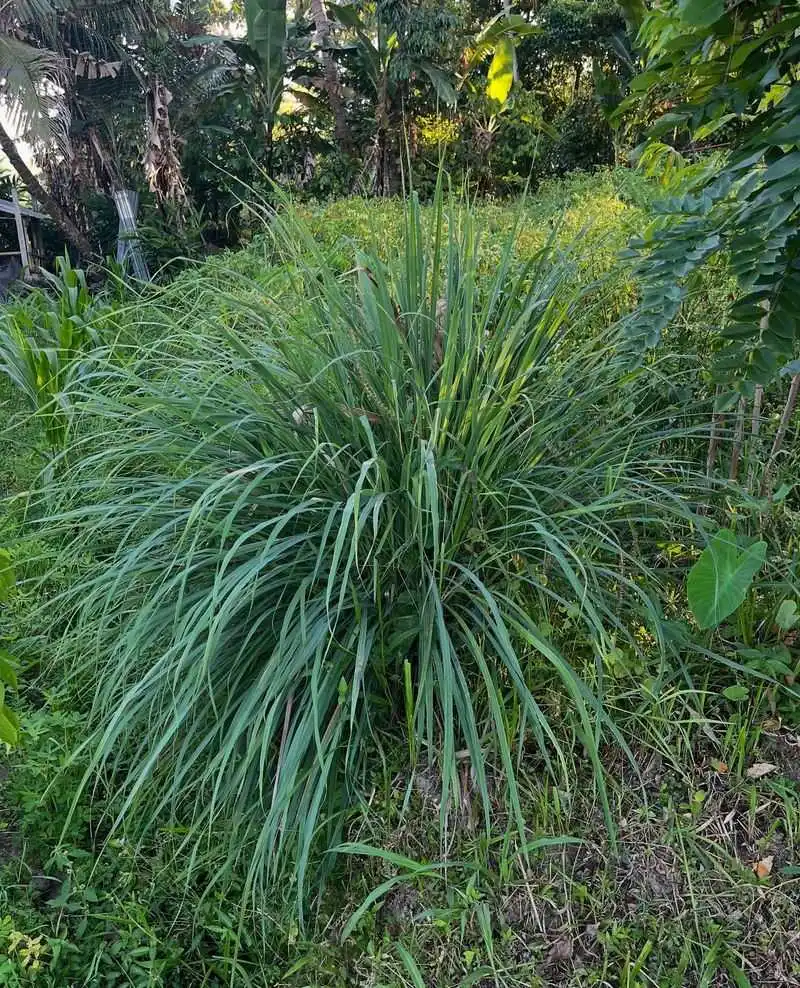
Lemongrass, with its citrus scent, is a natural mosquito repellent. Its oil, commonly used in candles, is derived from the plant itself. Growing lemongrass in your garden provides a continual source of mosquito defense. Its tall, graceful stalks add an elegant aesthetic to outdoor spaces.
Apart from its pest-repelling qualities, lemongrass is a favorite in Asian cuisine. Enjoy its dual benefits in both culinary and outdoor applications. Embrace lemongrass to add a touch of tropical allure while keeping pests at bay.
Catnip
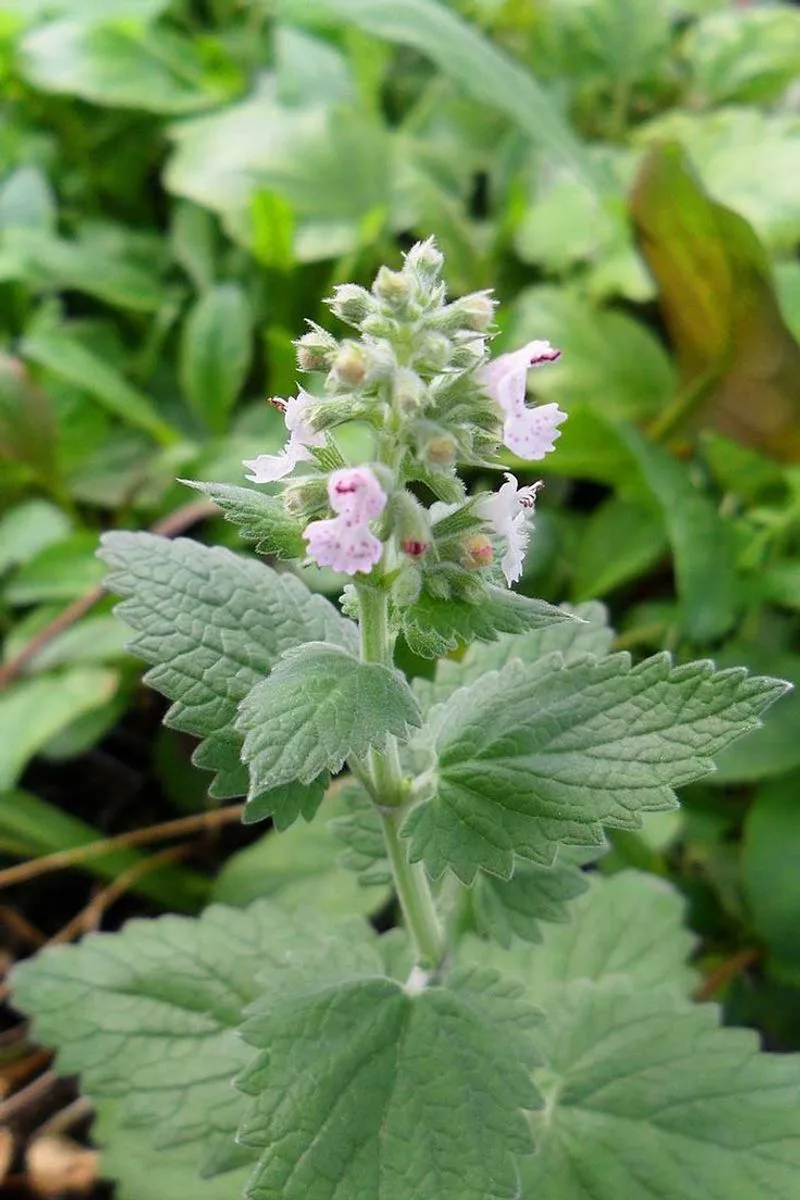
Catnip is not only a delight for felines but also a potent mosquito repellent. The plant contains nepetalactone, a compound more effective than DEET. Grow catnip in your garden or pots to enjoy its pest-repelling benefits. Its fragrant leaves ensure a mosquito-free zone.
Beyond its practical use, catnip attracts butterflies, adding life to your garden space. Historically, it was used in herbal remedies. Introduce catnip for its playful appeal to cats and its powerful insect-repelling properties, offering a lively addition to your garden.
Petunias
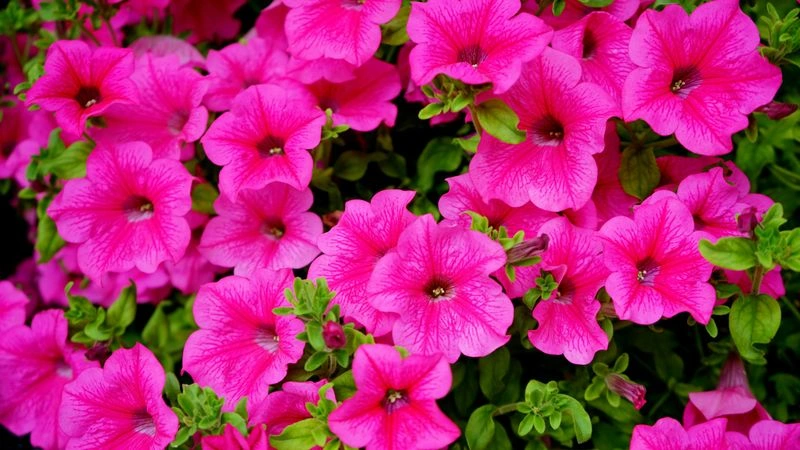
Petunias, with their colorful blooms, are natural pest deterrents, repelling aphids and beetles. Their easy-care nature and vibrant colors make them popular in gardens and hanging baskets. Plant petunias near vegetables to protect crops while adding beauty.
Their diverse hues brighten any outdoor space, making them a gardener’s favorite. Known as the “nature’s pesticide,” petunias are historically planted to guard against pests naturally. Enjoy their aesthetic appeal and protective benefits for a harmonious garden.
Chrysanthemums
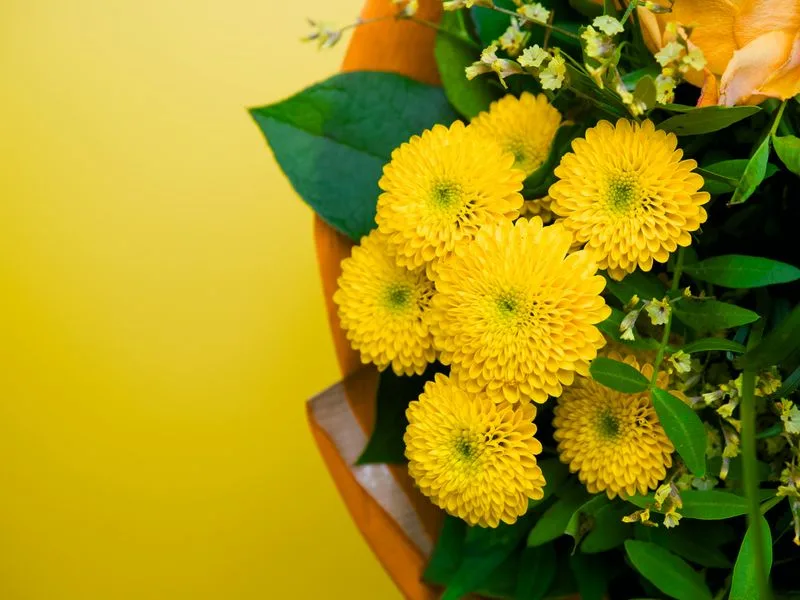
Chrysanthemums contain pyrethrin, a natural insecticide that repels ants, ticks, and fleas. Their striking flowers bring color to any garden while serving as an effective pest control method. Plant them around the garden to utilize their natural defense.
These blooms not only add visual appeal but are also used in making organic insecticides. Embrace chrysanthemums for their dual role in aesthetics and pest management. Their vibrant presence and functionality ensure a lively and protected garden environment.
Sage
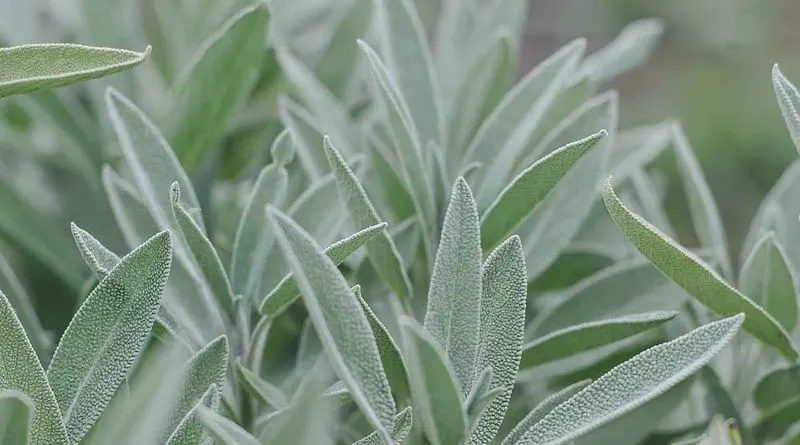
Sage’s aromatic qualities make it a natural insect repellent, especially effective against mosquitoes. Plant sage in your garden or patio to enjoy its fragrance while keeping pests at bay. Its grey-green leaves add a touch of elegance to your plant arrangements.
Beyond repelling insects, sage is a culinary herb cherished for its flavor. Its historical significance, being used in various ceremonies, adds to its charm. Choose sage for both its practical pest-repelling properties and its contribution to your culinary adventures.
Thyme
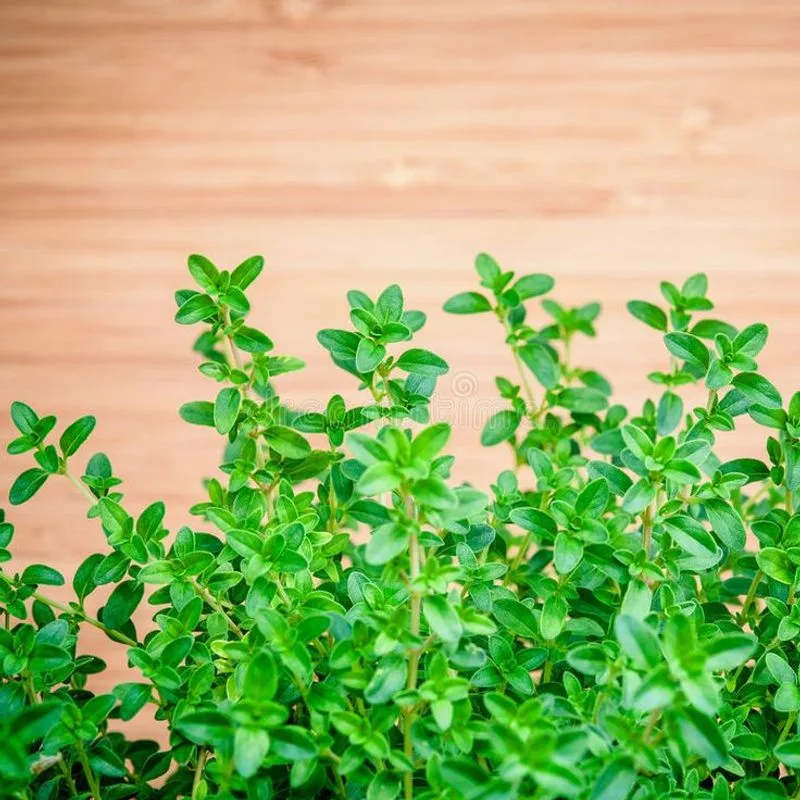
Thyme is a versatile herb that serves as a natural insect repellent, particularly effective against cabbage worms and whiteflies. Its aromatic leaves make it a pleasant addition to herb gardens. Plant thyme around vegetable gardens for added protection.
This fragrant herb not only deters pests but also enhances the flavor of many dishes. Historically used in ancient rituals, thyme brings both utility and history to your garden. Add thyme for its culinary benefits and its insect-deterring abilities, enhancing your garden’s health.
Bay Leaves
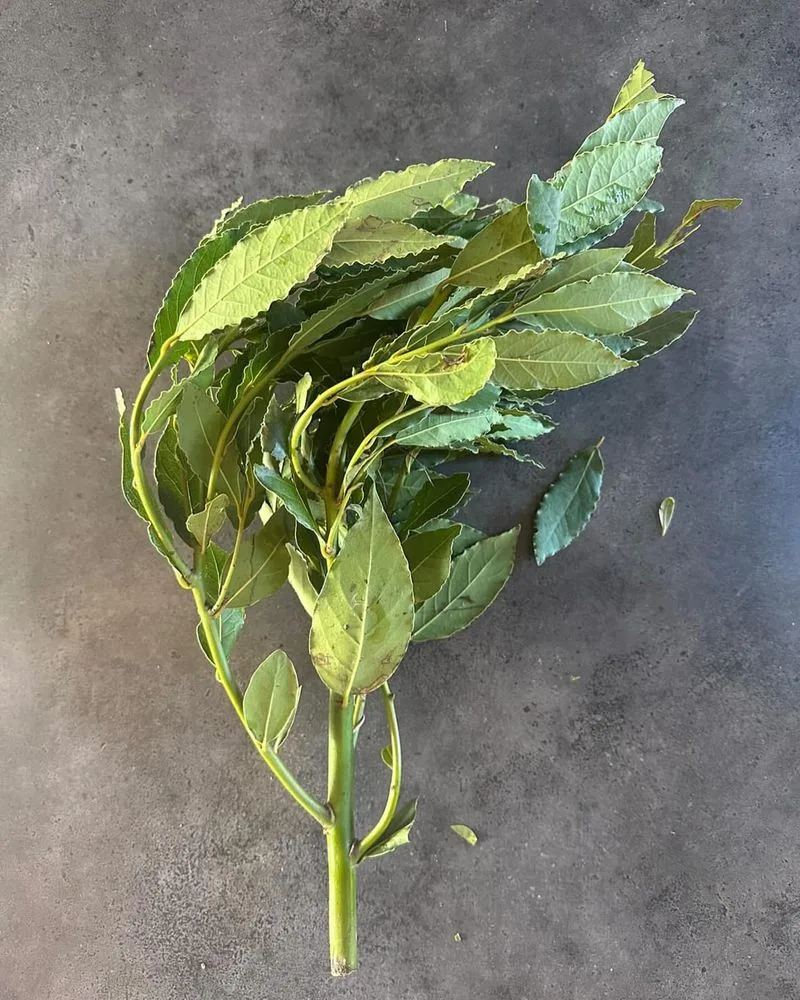
Bay leaves, from the bay laurel plant, are known for their ability to repel flies and roaches. Placing fresh bay leaves in the pantry can help keep these pests away. Their aromatic foliage adds a Mediterranean flair to any garden space.
Beyond pest control, bay leaves are a staple in cooking, known for enhancing flavors. Historically, bay leaves symbolized victory in ancient Greece. Incorporate bay leaves into your garden for their dual purpose of pest repelling and culinary enhancement.
Ageratum
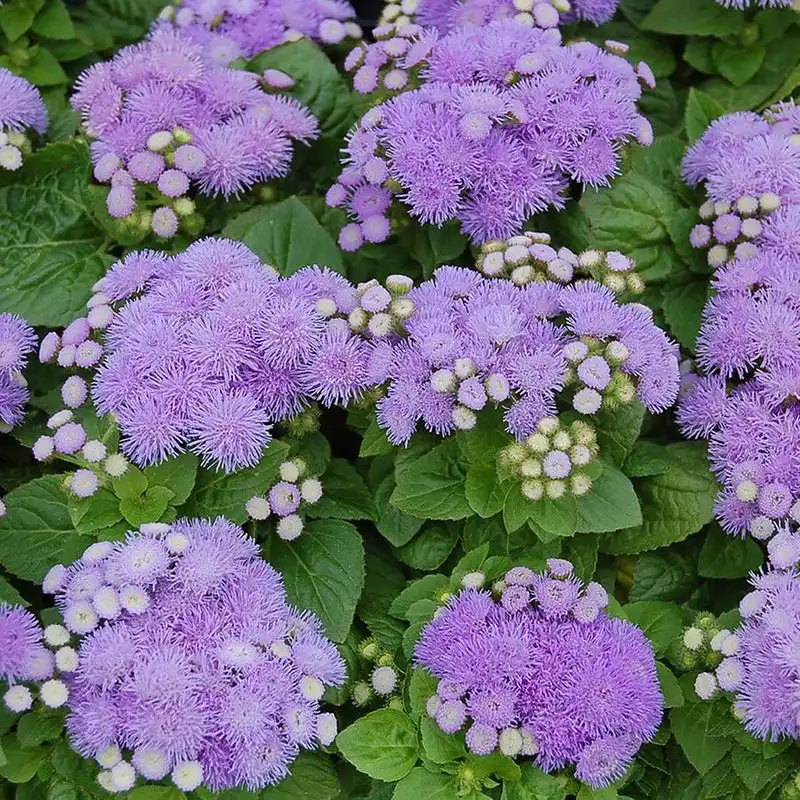
Ageratum, also known as floss flower, produces a scent that mosquitoes dislike, making it an effective natural repellent. Its delicate, fluffy blooms add charm to any garden setting. Plant ageratum among your flower beds for added pest protection.
Beyond its repellent properties, ageratum is popular for its long-lasting blooms that attract pollinators. The plant’s vibrant appearance and functionality make it a valuable addition. Enhance your garden with ageratum for both beauty and practical insect defense.
Alliums
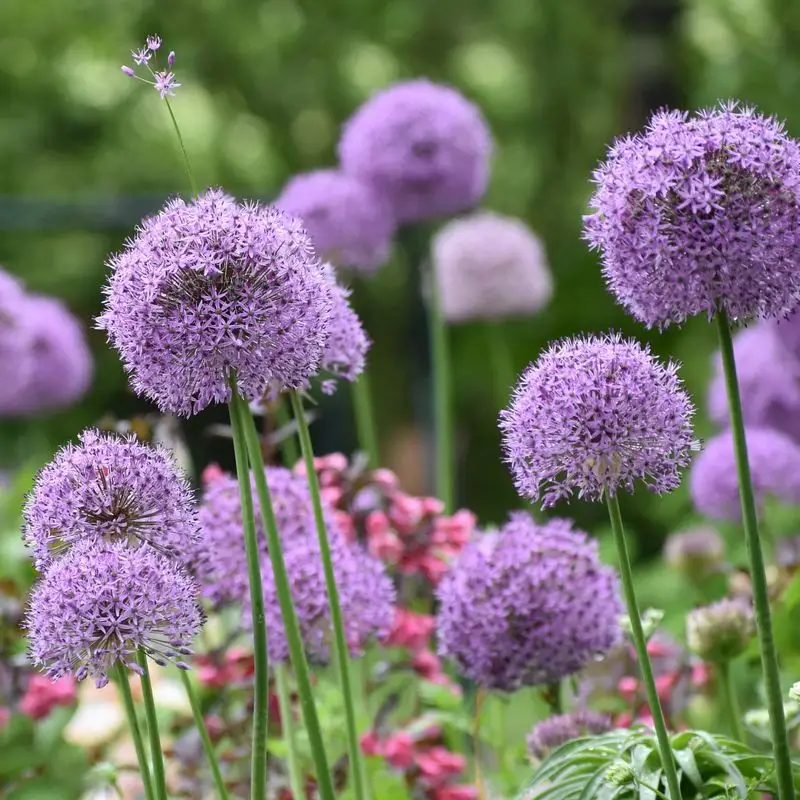
Alliums, part of the onion family, are known for repelling aphids, slugs, and carrot flies. Their distinctive purple blooms add a striking visual element to gardens. Plant alliums among vegetables to naturally deter pests while enjoying their ornamental value.
These flowers not only provide pest control but also serve as a stylish architectural element. Historically, they were used in herbal medicine. Introduce alliums to benefit from their pest-repelling properties and their unique garden presence.
Fennel
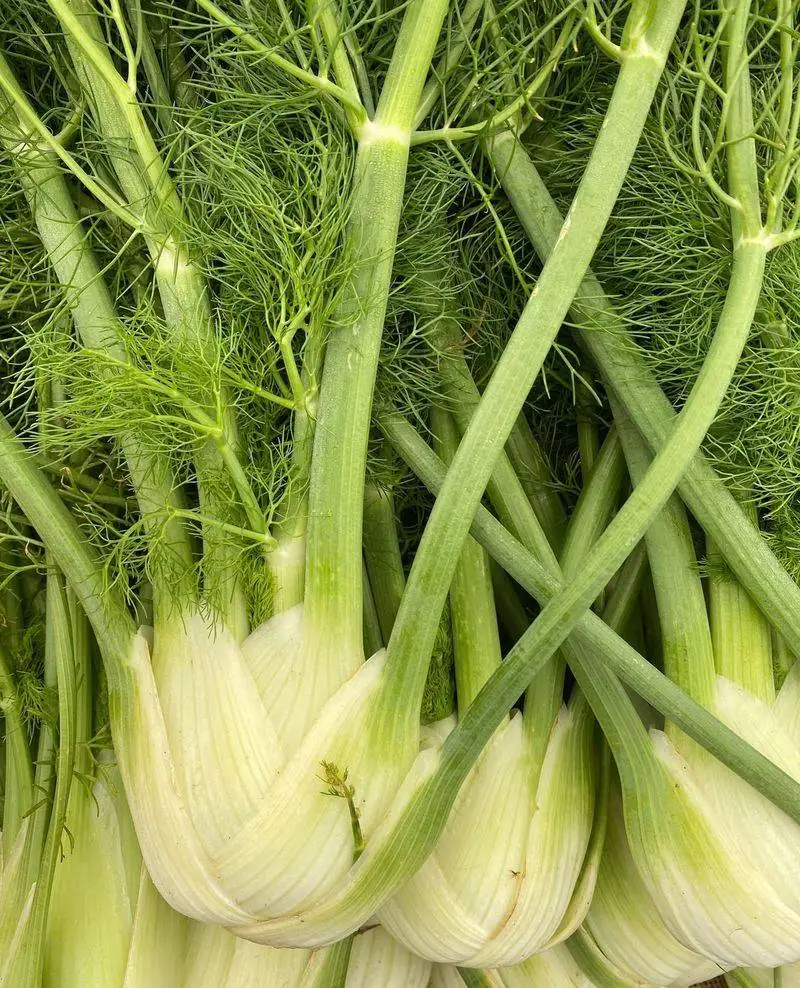
Fennel’s aromatic leaves are known to repel slugs and snails, making it a useful addition to gardens. Its tall, feathery appearance adds texture and interest to plant arrangements. Plant fennel around vegetable gardens for effective pest management.
Beyond its repellent nature, fennel is prized for its culinary uses, especially in Mediterranean dishes. Historically, it was believed to bring longevity. Incorporate fennel to enjoy its dual benefits of enhancing flavors and protecting garden health.
Garlic
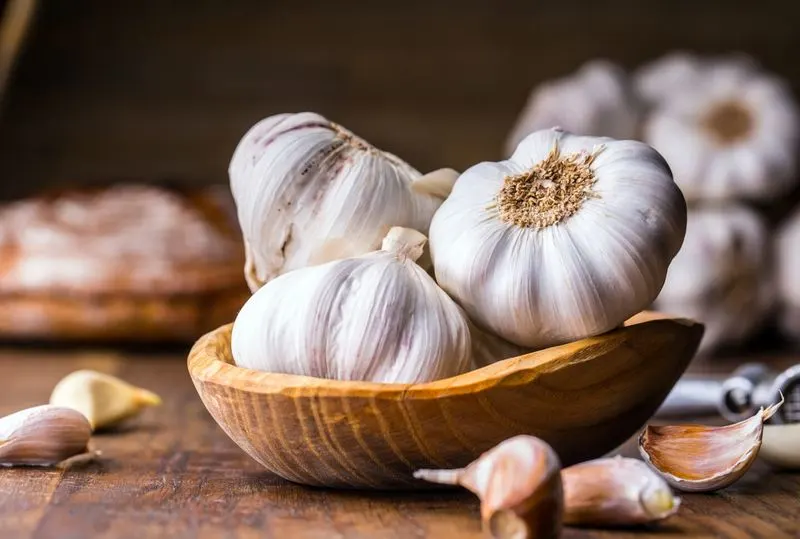
Garlic is not just a kitchen staple but also a natural pest deterrent. Its strong odor repels aphids, slugs, and various insects, making it ideal for protecting plants. Plant garlic among roses and vegetables to harness its natural defense.
This bulbous plant not only safeguards your garden but also enriches your culinary creations. Historically revered for its medicinal properties, garlic is a versatile addition. Embrace garlic for its robust pest-repelling abilities and its invaluable role in cooking.
Nasturtiums
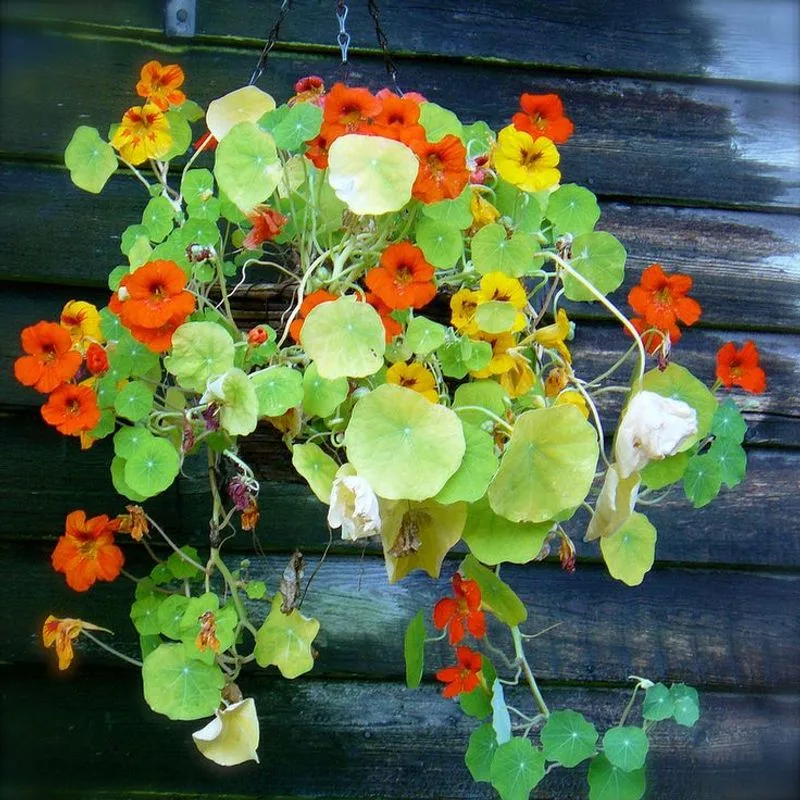
Nasturtiums are not only visually striking but also excellent at repelling aphids and whiteflies. Their bright flowers and trailing vines add color and life to gardens. Plant nasturtiums near susceptible plants to shield them from pests.
Aside from their protective qualities, nasturtiums are edible, adding a peppery flavor to salads. Historically, they were used in herbal remedies. Integrate nasturtiums for their dual role in garden beauty and natural pest control.
Oregano
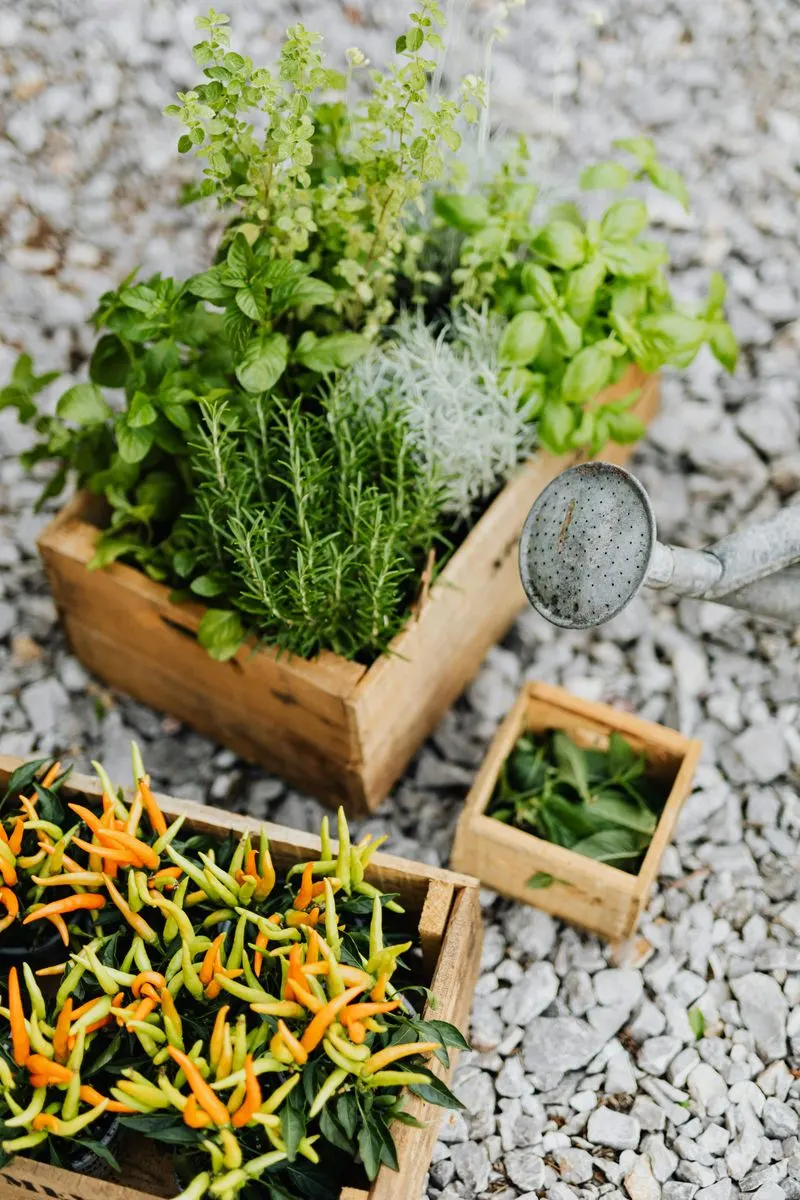
Oregano, a beloved herb in kitchens, serves as a natural insect repellent, particularly against cabbage moths. Its aromatic nature adds a layer of protection to gardens. Plant oregano near vegetables for its pest-repelling benefits.
This robust herb not only aids in pest management but also enhances culinary dishes. Known for its health benefits, oregano is a garden favorite. Welcome oregano into your garden for both its flavor and its ability to ward off unwanted insects.
Borage
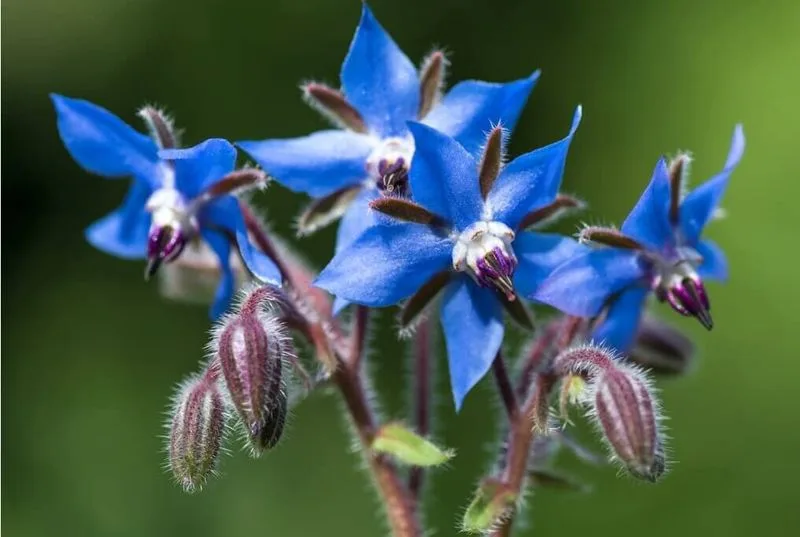
Borage, with its vibrant blue flowers, deters tomato hornworms and cabbage moths. Its star-shaped blooms attract beneficial insects, aiding pollination. Plant borage near tomatoes for added defense.
Beyond pest control, borage is edible, adding flavor and beauty to culinary presentations. Historically, it was believed to bring courage. Add borage to your garden for a blend of aesthetic appeal and practical pest defense.
Tansy
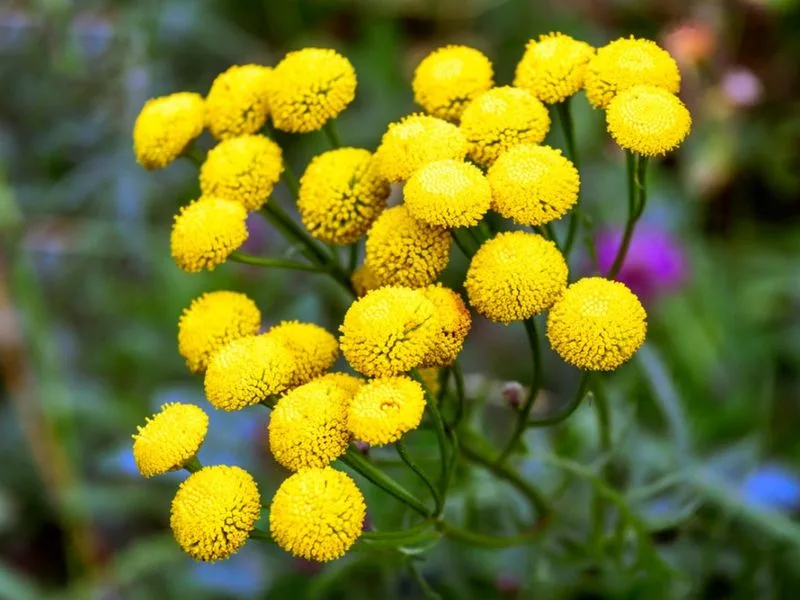
Tansy, with its bright yellow button-like flowers, offers more than just a splash of color to gardens. Its strong aroma acts as a natural deterrent to a variety of insects, including mosquitoes and ants.
This perennial herb can grow up to four feet tall, making it a striking addition to any landscape. Gardeners value tansy not just for its pest-repelling qualities, but also for its ability to enhance compost with its rich potassium content.
Did you know? Historically, tansy was used in funeral rites and as a symbol of immortality. Its unique history adds to its charm.

